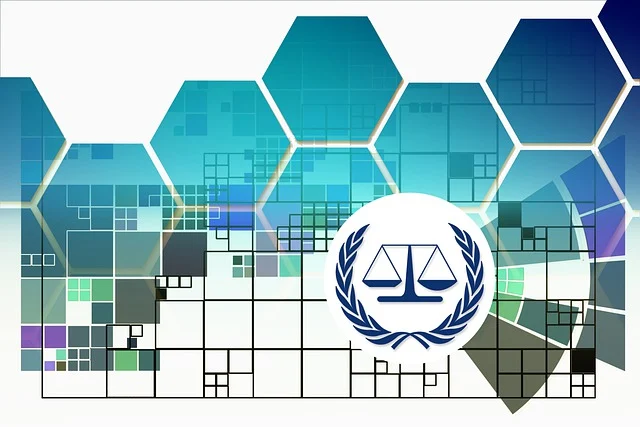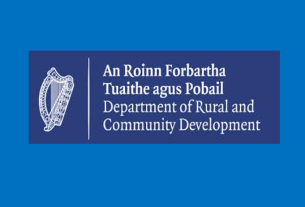Former President Donald Trump still faces a sentencing hearing scheduled for November 26 in his New York criminal case. This legal development could take a complicated turn, especially if he secures a win in the upcoming U.S. presidential election. ABC News Chief Legal Analyst Dan Abrams has stated that “it is hard to imagine a judge even considering” jail time for Trump if he is president-elect. This raises significant concerns about a potential clash between legal accountability and political realities, which could result in what some might see as a miscarriage of justice. The situation presents legal, constitutional, and political challenges that could shape the future of U.S. governance.
Legal Precedents and Constitutional Questions
One of the most complex aspects of this scenario is the legal ambiguity surrounding the intersection of criminal law and the office of the president. While the U.S. Constitution does not explicitly grant the president immunity from prosecution, the issue of whether a sitting or even a president-elect can face jail time is unprecedented.
- Presidential Immunity vs. Legal Accountability: The possibility of a sitting president facing criminal charges is murky, and this extends to a president-elect. While no clear legal precedent exists for dealing with a president-elect who is simultaneously facing legal consequences, questions would arise about whether it would be appropriate or feasible for a judge to impose jail time on someone preparing to assume the highest office in the land.
- Jail Time for a President-Elect: Dan Abrams highlights that it would be “hard to imagine” a judge imposing a jail sentence on a president-elect. In practical terms, it would be challenging to enforce a sentence that could interfere with the candidate’s ability to take office and perform presidential duties. The judicial system might be reluctant to act in ways that could potentially disrupt the transition of power or undermine the legitimacy of the election.
Clash of Interests and Political Ramifications
A scenario where a president-elect faces sentencing would create a profound clash between the rule of law and the political realities of governance. This is particularly problematic in a polarized political climate.
- Miscarriage of Justice Concerns: There is concern that legal actions against Trump in such a high-stakes context could be perceived as politically motivated, either as a form of retaliation or an attempt to prevent him from taking office. In this sense, there is a real risk of a “miscarriage of justice,” where the judicial process could be seen as manipulated for political gain. The perception that legal proceedings are being driven by political agendas could lead to further polarization and erosion of public trust in the justice system.
- Political Polarization: The political ramifications of such a scenario would also be immense. Trump’s supporters might view any legal action as an attempt to thwart the will of the electorate or as an unjust attempt to remove him from power. On the other hand, critics would argue that no one is above the law, and Trump should face the consequences for his alleged crimes, regardless of his political standing.
Practical Considerations and Legal Maneuvering
The intersection of legal proceedings and an electoral process could create significant legal and logistical complications.
- Post-Election Legal Maneuvering: If Trump is elected president while facing sentencing, his legal team could push for a delay in sentencing or seek alternative legal options, such as postponing court dates or requesting that proceedings be deferred until after the inauguration. Judges may be asked to balance the practical considerations of a new president taking office against the need to enforce legal consequences.
- Potential for a Pardon: If Trump is re-elected, the potential for him to pardon himself (or seek a pardon from a future administration) looms large. While this has sparked significant debate, legal experts suggest that a self-pardon would likely face significant constitutional challenges, setting the stage for a protracted legal battle.
Public Perception and Trust in the Justice System
A legal case involving a president-elect who is simultaneously facing serious charges could have serious consequences for public confidence in the justice system.
- Undermining Trust in the Justice System: The perception that legal action against Trump is politically motivated or biased could undermine public trust in the impartiality of the judicial system. This could further exacerbate existing political divides and make it harder for Americans to agree on what constitutes fair treatment under the law. If Trump were sentenced while still president-elect, many would question whether the legal system is being used as a political tool, and others might see it as an attempt to delegitimize his election.
Conclusion: A Historic Legal and Political Dilemma
The scenario where a president-elect faces legal consequences is unprecedented and could set a historic precedent for the U.S. judicial and political systems. How courts, political institutions, and the public respond to this situation will likely define the future of presidential accountability and the relationship between legal processes and political power. With the possibility of a clash between the legal system’s pursuit of justice and the democratic process, the outcome could have profound implications for both the future of the presidency and the nation’s legal traditions.
Suggested References:
- ABC News – Legal Analysis
- Dan Abrams and other legal analysts from ABC News frequently provide insights into the legal implications of high-profile cases, including those involving former President Trump. You can search for articles or video segments from ABC News covering the Trump legal cases, including those related to his criminal charges in New York. Website: abcnews.go.com
- The New York Times – Coverage on Trump’s Legal Challenges
- The New York Times regularly reports on Donald Trump’s legal battles and includes expert commentary on constitutional and legal questions, especially regarding presidential immunity and accountability. Website: nytimes.com
- Politico – Analysis of U.S. Politics and Law
- Politico provides extensive coverage of the intersection between U.S. politics and law, including issues related to criminal proceedings, potential pardons, and legal conflicts involving political figures. Website: politico.com
- CNN – Legal and Political Coverage
- CNN’s legal analysts often discuss the ramifications of criminal cases against political figures, including the potential for conflicts if an elected official is involved in legal proceedings. Website: cnn.com
- Lawfare Blog – Legal Commentary on National Security and Politics
- Lawfare, a blog focused on legal and national security issues, frequently publishes analysis of legal matters involving high-profile political figures, including former presidents. Website: lawfareblog.com
- The Constitutionality of Presidential Pardons
- For more on the potential for self-pardons and presidential immunity, legal journals such as the Harvard Law Review and Yale Law Journal offer scholarly perspectives on these constitutional issues. Website: harvardlawreview.org / yalelawjournal.org
- Supreme Court Opinions – On Presidential Immunity and Legal Accountability
- For insights into legal precedents, the U.S. Supreme Court’s opinions on presidential immunity and the extent to which a sitting president can be prosecuted would be key resources. Case law, such as United States v. Nixon and Clinton v. Jones, addresses issues of presidential accountability. Website: supremecourt.gov



